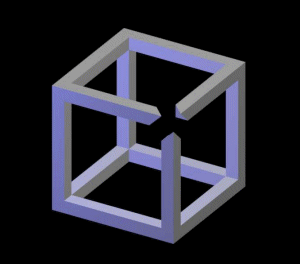Saturday, September 4, 2004
Web Support
There’s one thing I learned doing support for the various web sites and services I provide: whenever someone asks a question, they’re pointing out potential improvement to what you provide.
Often we are busy answering questions at hand, thinking we did the job after the answer has been satisfactory. In fact, by supporting this one user we only got rid of the symptom – her problem. The cause is still there, waiting for the next user to be trapped.
Let’s give some examples. A reader would write to you in regards to your web site asking you about your age for an article he’s preparing. You could just answer the question. Or, even better, you could improve your web site by adding a link to a page containing your personal information such as your age.
Or, someone asks you how to increase the font of the site. You could tell him how to do it... or make your stylesheets support default font-sizes.
Whenever asks a question it shows your web site doesn’t answer it on its own. Not that talking to your visitors is bad, but usability means using things without help – on intuition.
And most readers will not write to you. I don’t have statistics but over the years, my experience is out of 1000 or so visitors who see a broken link, only one will inform you about it. (Figures are much better for blogs, who tend to have more loyal readers than good-old navigation-metaphor hierarchical sites.)
One reason could be laziness on side of the visitor. The other could be the visitor believes if not even the web master of the site takes care of things, why should he?
For many errors I see, I think the same: probably no one around to take care of this site. Why bother writing?
Sometimes, people don’t ask questions in the first place. They point out the room for improvement straight away. Criticism makes some people act defensive. There’s no need, and this something else you need to be aware of in support. Not all criticism is because a user wants to satisfy her own needs; most of it is because the visitor is nice enough to inform you of a weakness of your site.
Someone tells you your layout is bad and he couldn’t find a thing? Don’t try to excuse. Or satisfy this user. He might not even care. He might have left the site right away, finally having found what he wanted elsewhere – but he’s being nice enough to let you know about this. He was clearly thinking of the next user arriving at your site, not himself.
On the positive side; whenever someone praises what you do, you probably (like me) naturally work twice as hard on it as before. If we know we’re going in the right direction we get confident to increase the speed. Everyone likes to support happy users.
Escher Applets

What looks like an impossible construction ...
This Java applet shows M. C. Escher’s woodcut “Metamorphose II.” in panoramic view. Another applet helps you to draw your own Escheresque image.

... is not.
Google Talk
Here is Google Talk. Start by entering four words to begin a sentence; wait a while to see your sentence being continued.
To include this on your own site, you can use the following HTML:
[Thanks Luc.]
Computer Chess Visualized
A visualization of how a computer AI thinks about making a chess move. [Via BoingBoing.]
Backlinks Alert With Hit Counter

The FindForward Backlinks Alert now also includes a straightforward hit counter.
We’re Gonna Need a Bigger Google

Give a group of guys a night of Italian wine and brainstorming and you’ll get a long list of classic googlespeak, including:
- One nation under Google
- In the beginning, there was Google
- I Google, therefore I am
- It was the best of Googles, it was the worst of Googles
- All my kingdom for a Googler
- Peace, Love, and Google
- All you need is Google
- Google like its 1999
- The Google at the end of the rainbow
Another Google Cartoon
Google blog google? [Via Waxy.]
Word Usage at National Conventions
See the words speakers used at the Republican and Democratic Convention. [Via Waxy.]
>> More posts
Advertisement
This site unofficially covers Google™ and more with some rights reserved. Join our forum!
